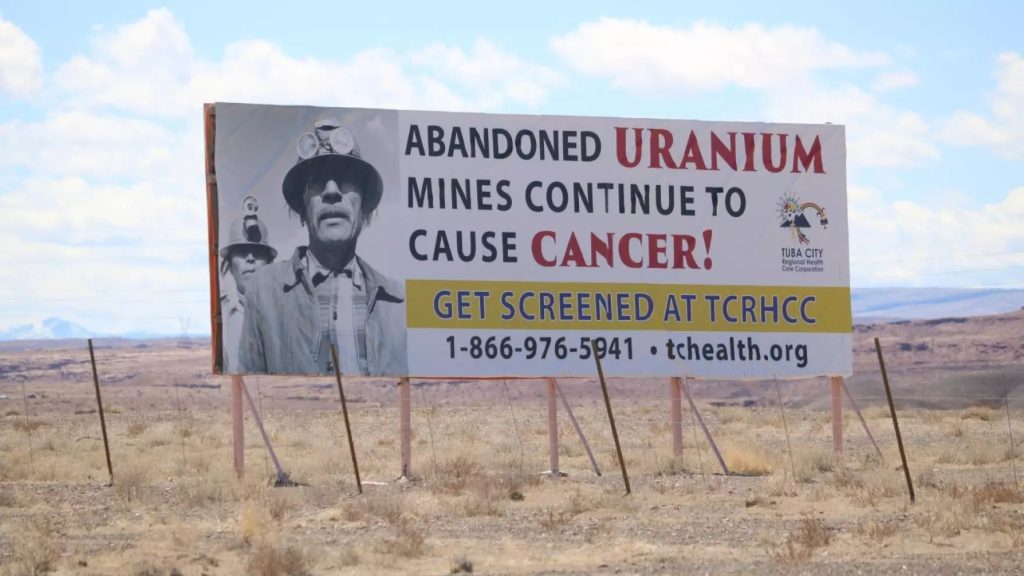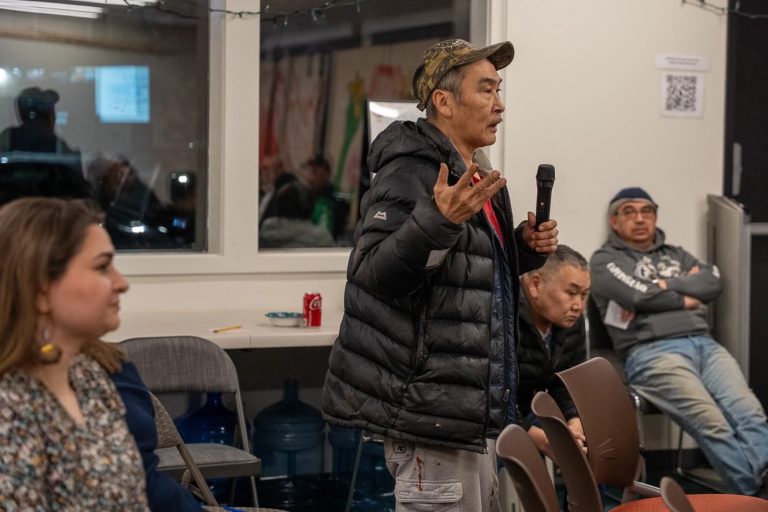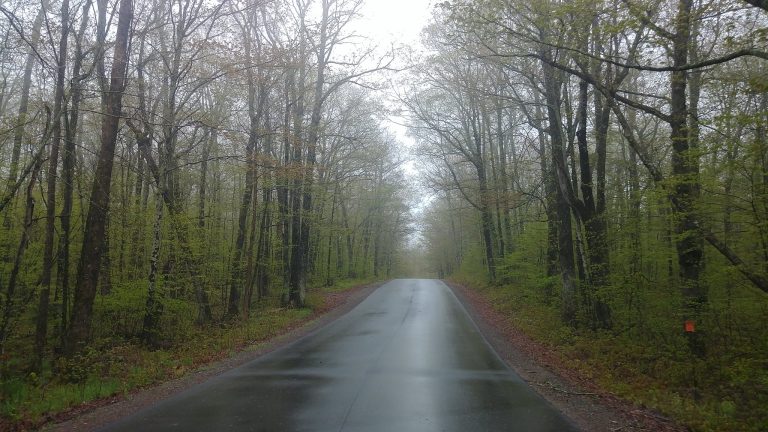Podcast: Play in new window | Download | Embed
People in tribal communities say they’re getting approached by predatory representation and solicitation in the wake of the Radiation Exposure Compensation Act (RECA) being revived by Congress this summer.
It provides compensation for uranium miners and people exposed to Cold War-era nuclear testing, as KJZZ’s Gabriel Pietrorazio reports in the second and final part of this story.
Listen to Part One
With the tribal fair season in full swing, solicitors are even targeting elders there – like 64-year-old Maggie Billiman – in rural, western New Mexico.
“It’s overwhelming. Who do you trust, who do you go to?”
At her home in northeastern Arizona, she says many Navajos like herself struggle with all sorts of cancers.
Billiman lives with Chronic Obstructive Pulmonary Disease (COPD) and chronic kidney disease.
The daughter of a late uranium miner and Navajo Code Talker, Billiman recalls being asked to sign up with a national home health care company at the Eastern Navajo Fair in Crownpoint, N.M., but that happened in July – a month before the U.S. Department of Justice (DOJ) reopened the free process.
“And she looked at me real surprised and she goes, ‘We can get your record for you if you’d like. Fill it out.’ And I said, ‘Oh, my god.’ I got up out of the chair.”
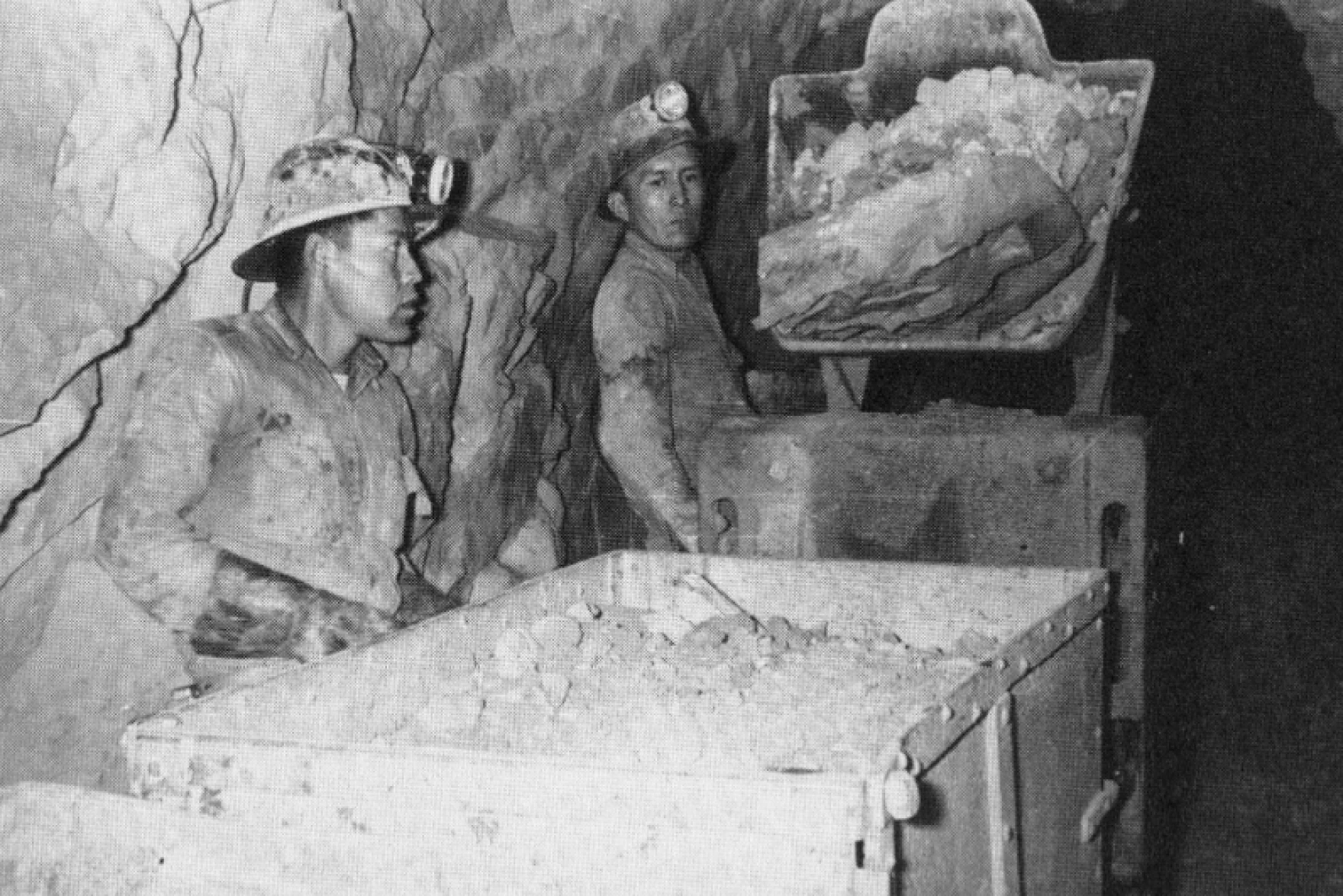
Miner Alfred Francis is operating a mucking machine, while tran operator Bill Shorty stands in the foreground inside the Rico mine in Colorado in 1953. (Courtesy Navajo Uranium Miner Oral History and Photography Project / Center for Southwest Research at UNM Libraries)
That fair booth was run by United Energy Workers Healthcare (UEW), which paid $9 million in 2023 to settle allegations of submitting false claims to the U.S. Department of Labor.
Several requests from KJZZ to UEW went unanswered.
They’ve been named among companies and attorneys in the West on a growing watch list curated by a working-group led by the nonprofit Union of Concerned Scientists.
Their advocacy has led New Mexico’s attorney general to warn consumers to watch out for fraud.
Cancer survivor Tina Cordova is sounding the alarm, too.
“It’s pervasive, the scale is unprecedented.”
As co-founder of the nonprofit Tularosa Basin Downwinders Consortium, she and others cite as an example downwinders.com, a web domain trademarked by the Florida-incorporated National Cancer Benefits Center, which also owns another company called Atomic Veterans.
“They’ve made people believe that they’re working with us.”
National Cancer Benefits Center CEO Kirk Gladwin denies the allegations, stressing his company is part of the solution.
“We do not solicit – we do not knock on doors – we do not call anybody ever and we never have, unless those people ask us for information. Don’t let anybody tell you that because that’s bull-[bleep] and I hate to say that, but that – that – that – that. I’ll draw the line. That makes me angry, because that’s not us.”
Those affected can still find free assistance from a handful of federally funded health clinics through the Radiation Exposure Screening and Education Program (RESEP).
Candice Lewis (Diné) is the RESEP patient navigator at North Country HealthCare in Flagstaff, Ariz.
“The scams were new to me.”
It’s one of only two such clinics in Arizona and she’s getting calls from all over.
“I actually got off the phone earlier today with someone who was from New Mexico, and he shared a little bit of what he was going through. It was a hard call, they didn’t even state their name.”
That’s supposed to be her job, so it upsets her.
“Lawyers have more power and pull than me and it has been a little overwhelming at times, but I’m just like, ‘Bear with me, just be patient with us.’”
Because if someone lawyers up, Lewis says her clinic can no longer help them with filing a RECA claim before the end of 2027.
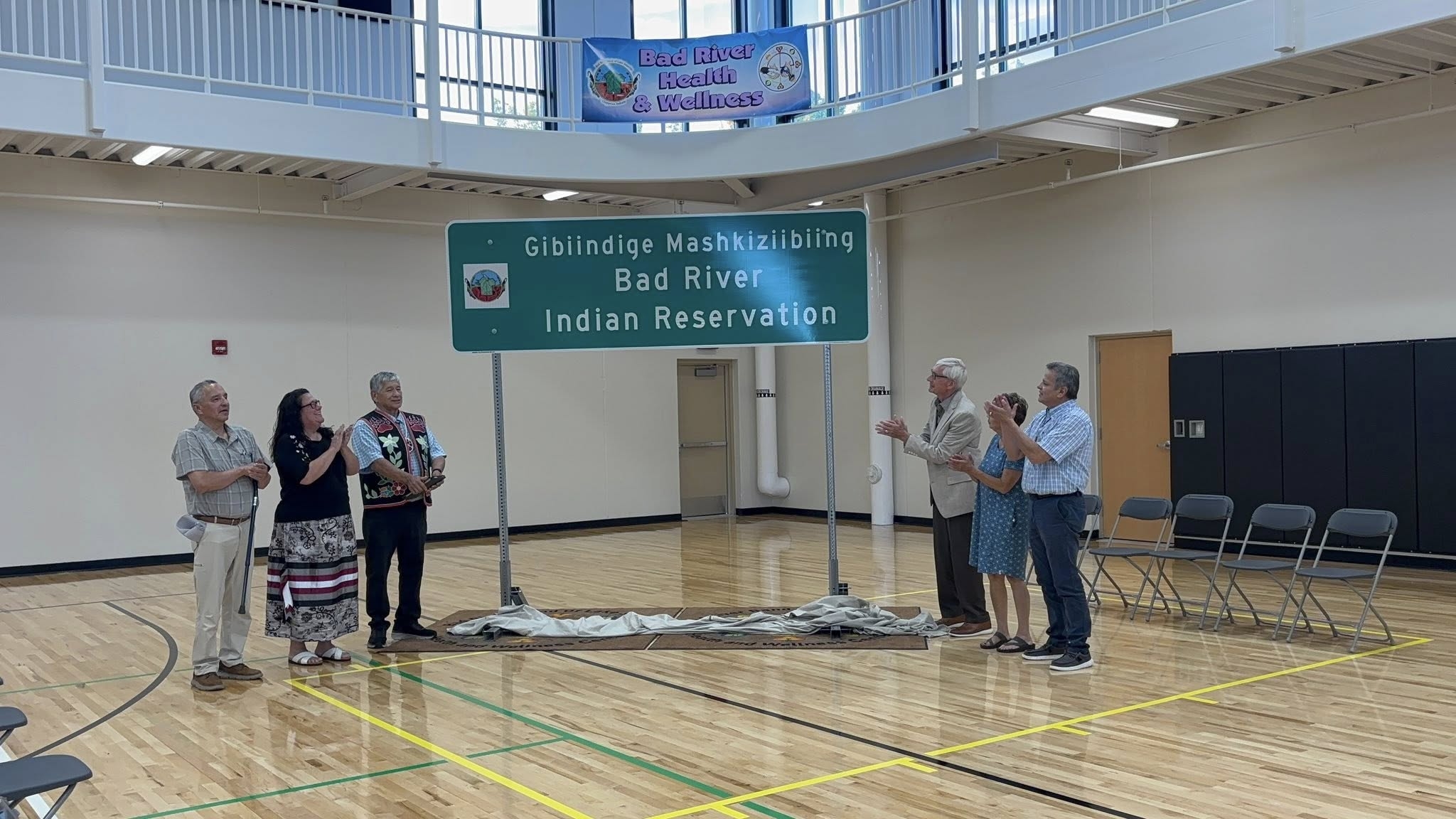
(Courtesy Gov. Tony Evers / Facebook)
The Bad River Band of Lake Superior Chippewa and the state of Wisconsin recently celebrated new dual-language road signs.
The signs identify the tribe’s boundaries and two river crossings in Ojibewmowin and English.
The Bad River Band is the eighth of 12 tribes in the state to collaborate on dual-language road signs to be placed on state highways.
Get National Native News delivered to your inbox daily. Sign up for our daily newsletter today.
